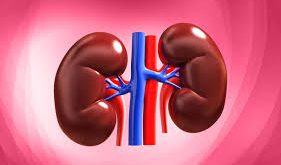~Increase breast cancer awareness in rural areas by educating women about self-examination Techniques and regular check-ups to significantly improve their quality of life – Doctor
Pune: Breast cancer is a widespread issue that affects women from all walks of life, including those living in rural areas. Without adequate knowledge or access to regular check-ups, women living in rural areas remain ignorant about simple practices like self-breast examinations that could potentially save lives. Women in rural areas should be encouraged to perform self-breast examinations at least once a month after turning 25. Timely detection of breast cancer and prompt treatment are key to saving the lives of women.
According to the Indian Council of Medical Research (ICMR), breast cancer in India varies from as low as 5 per 100,000 female populations per year in rural areas to 30 per 100,000 female populations per year in urban areas. When compared to urban areas, women in rural areas are unaware of breast cancer leading to loss of life due to ignorance.
Dr. Jaypalreddy Pogal, Surgical Oncologist, TGH-Onco Life Cancer Center, Talegaon says, “Breast cancer affects millions of women not only in India but globally, and continues to claim lives due to lack of awareness in rural areas. The disparity between urban and rural communities when it comes to access to information and healthcare services is striking. In rural areas, the limited availability of health facilities and resources hinders early detection and treatment for breast cancer. More than 80% of women living in rural areas are more likely to be unaware of symptoms such as lumps in their breasts, changes in breast size or shape, redness or thickening of the skin, nipple inversion or discharge, and sudden pain in the breast. They often land up in hospital in later stages when their condition worsens. This leads to poor prognosis of the cancer and higher morbidity and mortality rates. 26-30% of women who came in later stages. Fear of judgment or stigma acts as a significant barrier preventing women from seeking help or getting screened for this deadly disease. Many women are simply unaware of risk factors such as family history, obesity, or smoking that can increase the likelihood of developing breast cancer.”
Dr. Jaypalreddy Pogal added, “By organizing small workshops or health camps tailored specifically for these communities, information about breast cancer can be disseminated effectively. Promote early detection methods to help women understand the symptoms. Educating women about self-examination techniques and the importance of regular check-ups can significantly improve detection rates, and help with prompt treatments. Women in rural areas should be encouraged to perform self-breast examinations at least once a month after turning 25. Also, help women with training sessions, pamphlets, and educational videos on how to perform self-examinations at home.”
“Women who receive timely interventions, such as surgery or radiation therapy, have a higher chance of survival compared to those with late-stage diagnoses. When breast cancer is caught early, it can be managed with breast-conserving surgery. Breast-conserving surgery is surgery to remove the cancer as well as some surrounding normal tissue. Only the part of the breast containing the cancer is removed. How much breast is removed depends on where and how big the tumor is, as well as other factors. This surgery is also called a lumpectomy, quadrantectomy, partial mastectomy, or segmental mastectomy. By intervening in a timely manner, women can potentially avoid more extensive procedures and their associated complications. It is vital for rural women to prioritize regular screenings and seek medical attention if any suspicious symptoms or changes are noticed in order to battle breast cancer. added,” Dr Prasad Kulat, Consultant Obstetrician and Gynaecologist, Ankura Hospital, Pune
 Newspatrolling.com News cum Content Syndication Portal Online
Newspatrolling.com News cum Content Syndication Portal Online






